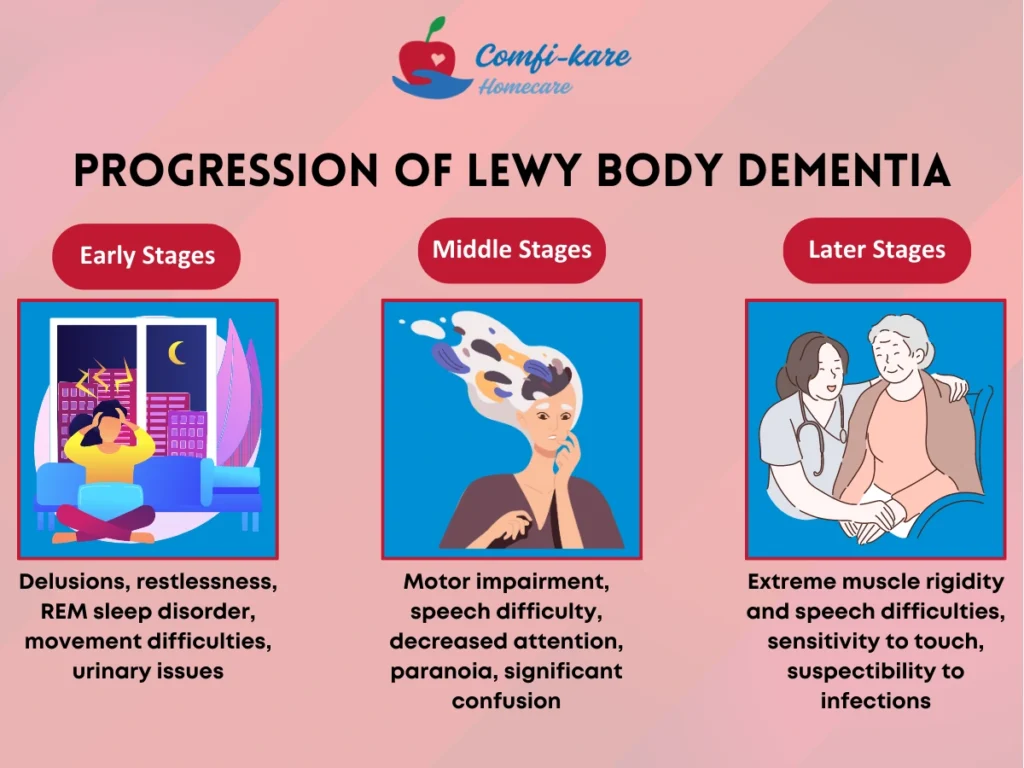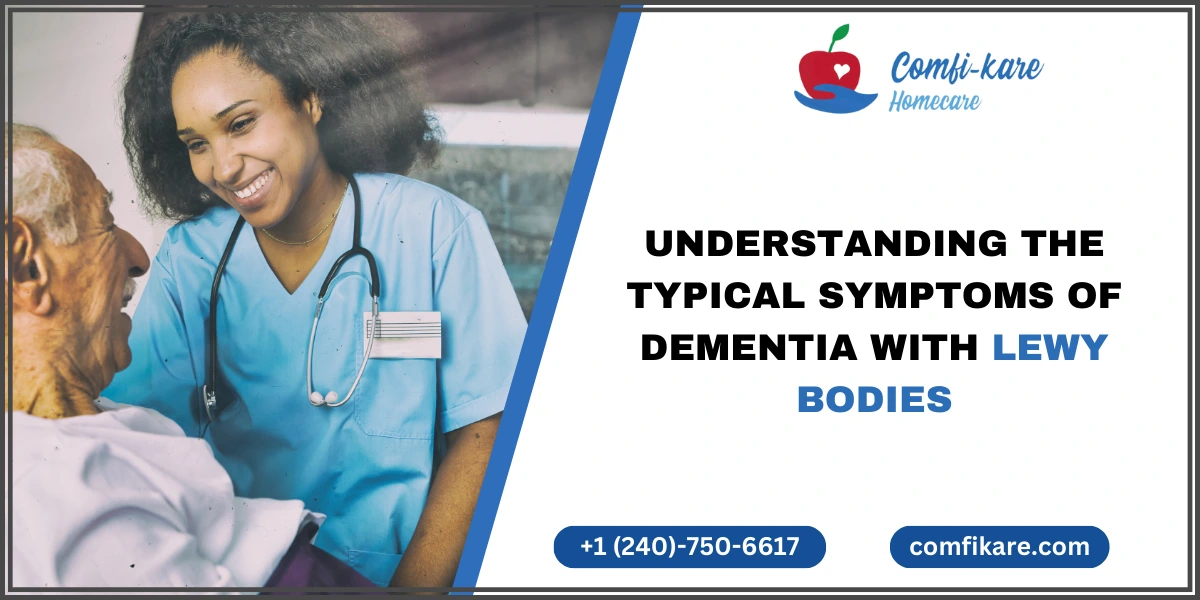Not all sorts of dementia affect our bodies in the same way. Have you heard about dementia with Lewy bodies? This specific kind of dementia affects our memory in a certain way. Though the news of Lewy Body Dementia (LBD) can be devastating, knowing its stages can help you understand the kind of memory care services you need for your loved one.
In this blog, you get
Table of Contents:
- What is LBD?
- Three Differences Between LBD and Other Dementias
- Stages of LBD
- How To Find the Right Alzheimer’s Care?
What is Lewy Body Dementia?
LBD, or Lewy Body Dementia, is a kind of dementia that results in cognitive decline. It is slightly different from the other kinds of dementia symptoms. In this form of dementia, there is an abnormal protein deposit in the brain’s nerve cells. This protein is known as an alpha-synuclein protein, which affects the cognitive region of the brain.

As a result, you will notice that your loved one is showing visual hallucinations, slower movements, troubled walking, tremors, and so on.
Common Differences Between LBD and Other Dementia Types
| LBD | Other Kinds of Dementia |
| Deposits of Alpha-Synuclein Protein | Deposits of Other sorts of Proteins like Amyloid Plaques, Tau Tangles, and so on. |
| Hallucination | NO Hallucinations |
| Signs of Parkinson’s disease | NO Signs of Parkinson’s disease rapidly |
| Progressive Cognitive Decline | Progress Slowly |
The symptoms start in the 50s or mid-80s when you notice that your loved one forgets about family or themselves. They start seeing things that do not exist, and they start having conversations with them. Their personalities change dramatically, and in the final stage, they need 24-hour memory care.
In the following paragraph, we are going to see the stages of LBD-early stage, middle stage, and advanced stage. This will help you understand the kind of care and treatment plan you need to seek for your loved one. Also, don’t forget to consult any
Stages of LBD
There are three stages of LBD: the early stage, the middle stage, and the advanced stage. The symptoms vary to some extent, and you will notice these symptoms gradually increasing and worsening over time.
Let’s get this straight,

Early Stage
You will see some noticeable symptoms of cognitive decline, however, your loved one won’t be facing any significant changes in the activities of daily living.
Symptoms you find at this stage are:
- Mild memory lapses and forgetfulness
- Begin hallucinating
- Mild motor symptoms that resemble Parkinson’s disease
- Finding the right word to finish up the conversation
- Low attention span and difficulty concentrating
Middle Stage
You will notice an apparent change in cognitive decline that affects the activities of daily living.
Symptoms include
- Decline in cognitive behavior
- Difficulty recognizing familiar faces
- A decline in language and communication makes conversations more challenging
- Vivid and disturbing hallucinations
- Behavioral and psychological symptoms like anxiety, depression, and agitation
- Prominent Parkinson’s symptoms affect mobility and balance
Advanced Stage
There will be a total loss of independent living and merely profound cognitive decline.
The Symptoms include:
- Severe memory loss
- Limited speech or complete loss of language
- Distressful and vivid visual hallucinations
- Severe motor symptoms like immobility or complete loss of mobility
- Medical complications resulting in severe infections
- 24/7 memory care is needed, as is assistance with the activities of daily living
How To Find The Right Memory Care in Silver Spring At Lewy Body Dementia Stages?
If your loved one is showing signs of LBD, going for Alzheimer’s care or memory care in Silver Spring at the earliest can help reduce the progression rate. If your loved one is in the initial stage, simply getting a home caregiver can make things a bit simpler.
Get in touch with Comfikare Homecare to get the best memory care in Silver Spring. Our caregivers are trained to offer the best home care services, including memory care or Alzheimer’s care in Silver Spring, Maryland. Our care experts first understand what your loved one is going through and access their needs and preferences. Based on this, certified caregivers are given the task of fulfilling the needs and demands of your loved ones.
Get in touch with us to get your certified home caregiver now!

